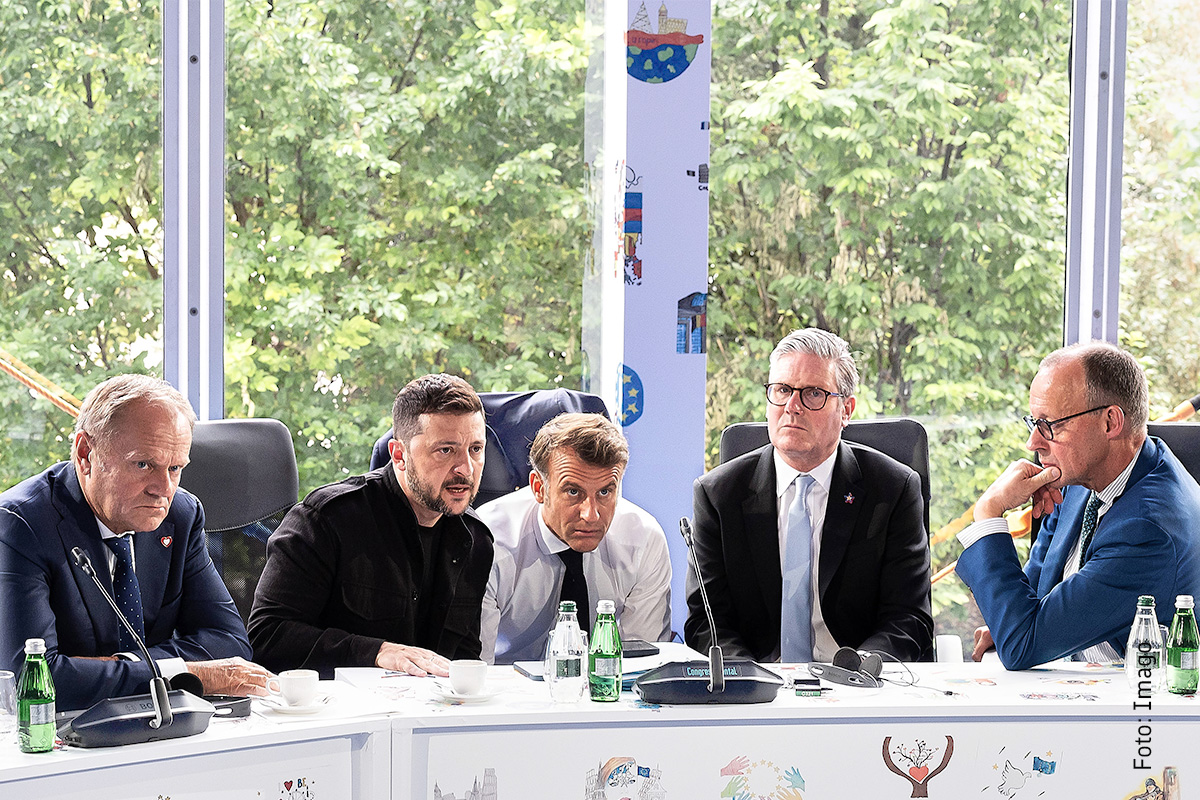How Putin is exploiting the crisis in Sri Lanka

In Sri Lanka, demonstrators have taken over the presidential palace, partly because the prices of wheat and petrol have risen immeasurably as a result of the war in Ukraine. Russia is now using the crisis to undermine Western sanctions and to win new partners in Asia.
The pictures from Sri Lanka are shocking: People enthusiastically jumping into the pool of the stormed presidential villa, street protests, and long queues outside shops and petrol stations. The effects of the Ukraine war are particularly evident in this crisis. Rising wheat prices and expensive fuel are burdening the country’s already shaken economy. In Sri Lanka, the domino effect of a once economically and globally interconnected world, which is experiencing supply shortages due to war and thus political crises, is becoming apparent. Moscow, of all places, is now trying to act as a helper and consolidate its influence in the region.
20 million tonnes of wheat are stuck in Ukraine. Part of it should also have been delivered to Sri Lanka if there had been no war and Russia had not blocked exports. Russia and Ukraine together account for almost a third of the world’s wheat exports. The US sees Russia as indirectly responsible for the situation in Sri Lanka. “We are seeing the impact of this Russian aggression playing out everywhere. It may have contributed to the situation in Sri Lanka,” US Secretary of State Antony Blinken said on Sunday. He called on Russia to release wheat exports in order to avoid similar crises. “What we are seeing around the world is growing food insecurity that has been significantly exacerbated by the Russian aggression against Ukraine.”
Chaos has already been looming in Sri Lanka since March. Protests against the government have been taken place repeatedly. The South Asian state is experiencing its worst economic crisis in 70 years. A lack of tourism revenue due to coronavirus, tax rebates for large companies and a high national debt have led to the country being virtually insolvent today. Since the Russian invasion of Ukraine, wheat and energy prices have skyrocketed, hitting the Sri Lankan economy even harder. The population is Particularly affected by the situation. The announcement of President Gotabaya Rajapaksa’s resignation on Monday was celebrated with fireworks in the capital Colombo. The day before, a mob had stormed the presidential palace and set the Prime Minister’s residence on fire.
For Russia, this self-generated crisis now offers the opportunity to expand its own influence. The government of the island state recently announced that it plans to buy cheap Russian oil. Thus, it is joining other countries in the region that are already doing so. India, for example, bought Russian oil at a discount months ago. India‘s finance minister said that she was putting her country’s energy security first. In the UN Security Council, India, like Sri Lanka, has so far refrained from imposing sanctions, partly because it imports almost 70 per cent of its military equipment from Russia and is thus dependent on Moscow. China also buys cheap Russian oil. Chinese imports rose by 28 per cent in May compared to the previous month. This is not surprising, as the Russian-Chinese friendship has strengthened during the war and Russia is now considered a “junior partner” of China by analysts. Western sanctions are losing their impact due to these new major oil customers.
However, countries buying Russian oil are in a dilemma. On the one hand, they need cheap oil for their populations, which are far poorer than in Europe. On the other hand, they risk being disapproved by the West, which supports Ukraine. “These countries will be forced to take sides at the G20 summit to be held in Indonesia in November if they choose Russia and it loses the war,” Peter Timmer of Harvard University tells WELT.
But Russia is not only using oil to present itself as a helper in times of need. For example, according to the Prime Minister of Sri Lanka, Moscow offered to supply wheat. Timmer, however, warns that this could lead to greater dependence on Moscow. Instead, he suggests: “There are enough rice stocks in Asia to get through the next 12 months without a food crisis,” says Timmer. India, China, and the ASEAN countries have the potential to replace 30 million tonnes of wheat with rice. This would slightly increase the price of rice, but the world would have more wheat available, which could avoid famine, especially in poorer countries in North and Sub-Saharan Africa.
Both India and Russia have offered to supply Sri Lanka with wheat soon, according to the government. India is doing so despite an export embargo.
![]()
Did you like thike this article? If yes, you can support the independent editorial work and journalism of LibMod via a simple donation tool.
Donate via PayPal
![]()
We are recognized as a non-profit organization, accordingly donations are tax deductible. For a donation receipt (necessary for an amount over 200 EUR), please send your address data to finanzen@libmod.de
Related topics
Newsletter bestellen
Stay tuned with our regular newsletter about all our relevant subjects.





